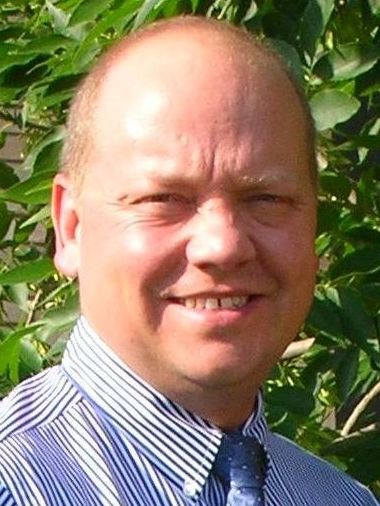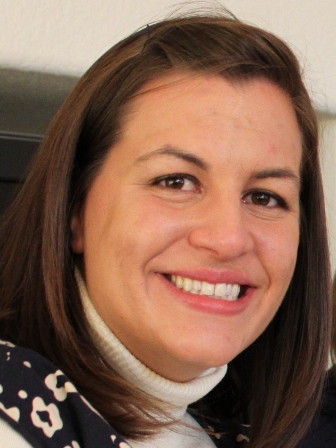 |
 |
|

Technical Short
Course |
 |
 |
|
|
|
Back-To-Basics on Measurements |
|
|
DATE/TIME Friday,
October 19, 2012 (9:00am to 4:00pm) -- LUNCH PROVIDED |
| PLACE
AMD Fort Collins Campus
(Fort Collins, CO)
|
|
DIRECTIONS
|
|
From
I-25, take Harmony Road Exit (Exit 265) westbound, and enter AMD
campus on right immediately following Harmony/Ziegler
intersection. AMD is located on the NW corner of Harmony
Road and Ziegler Road. Proceed to 3rd floor for escort to
seminar auditorium. Non-AMD
employees: please arrive at 8:45am for security sign-in
and escort. |
|
COST
Free. As always,
food & drinks will be provided. |
|
RSVP
Register
here.
ATTENDANCE IS LIMITED. YOU MUST
REGISTER TO RECEIVE A COMPLIMENTARY HARDCOPY OF THE COURSE NOTES
AND LUNCH. |
|
|
AGENDA |
|
9:00am - 10:20am |
Presentation 1 (Signal Analyzer Basics) |
| 10:20am -
10:40am |
Break |
|
10:40am - 12:00pm |
Presentation 2 (Digital Communication & Vector
Signal Analysis) |
| 12:00pm -
12:45pm |
Lunch Break (Provided by
Agilent) |
|
12:45pm - 2:05pm |
Presentation 3 (Network Analysis Basics) |
| 2:05pm -
2:25pm |
Break |
|
2:25pm - 3:45pm |
Presentation 4 (Signal Sources Basics) |
| 3:45pm -
4:00pm |
Raffle & Wrap-up |
|
|
|
ABSTRACTS |
|
Presentation 1:
Signal Analyzer Basics |
|
Learn why spectrum analysis is important for a
variety of applications and how to measure system and device
performance using a spectrum analyzer. This presentation begins
with an introduction to spectrum analyzers and a discussion on
theory of operation. We will examine the instrument’s major
components and their significance as well as the spectrum
analyzer specifications that are important for your application.
We will also discuss measurement examples like phase noise and
noise figure. |
|
Presentation 2: Digital Communication & Vector Signal Analysis |
|
In this talk, digital modulation concepts and
analysis tools will be discussed. The digital modulation
overview will focus on transmitter and receiver overviews,
signal characteristics to modify (AM, FM, PM modulation), polar
display and I/Q relationships, I/Q modulation as well as Error
Vector Magnitude (EVM) calculations and analysis. |
|
Presentation
3: Network Analysis Basics |
|
This presentation addresses the principles of
measuring high-frequency electrical networks with network
analyzers. Attendees will learn what kind of measurements are
made with network analyzers and how they allow characterization
of linear and non-linear device behavior. The session focuses
on RF fundamentals and takes you through the concepts of
reflection, transmission, S-parameters, and X-parameters. The
presenters will review the major components of a network
analyzer as well as the advantages and limitations of different
hardware approaches. We will also demonstrate some typical
swept-frequency and swept-power measurements commonly performed
on filters and amplifiers. |
|
Presentation 4:
Signal Sources Basics |
|
This presentation addresses the basics of signal
generation, key signal specifications, and applications of test
signals. We will also show how signal generators are taken
beyond general purpose applications to simulating advanced
signals with impairments, interference, signal capture, and
waveform correction. |
|
|
PRESENTATION SLIDES |
|
|
|
|
REFERENCES |
|
|
|
|
JOHN MEISTER
(Agilent Technologies, Fort Collins, CO) |
 |
John Meister has been an RF and Microwave Applications Engineer
at Agilent Technologies for over 15 years. His areas of
expertise include complex signal generation and demodulation;
Vector Signal Analysis (VSA); EMC test requirements; test
automation and software development; and application specific
test instrumentation for Signal Analyzers, Network Analyzers,
Power Meters, etc. He completed his BS in Electrical
Engineering at the University of Colorado and resides in Fort
Collins, CO. |
|
|
SARAH GILMORE (Agilent Technologies, Englewood, CO) |
 |
Sarah Gilmore began her career at Agilent
Technologies in 2000 and for the past 6 years, she has been
focused on accounts in the storage, computing and wireless
industries. Working to match customer requirements to technical
equipment configurations, Sarah assists her customers in
choosing the right solutions from the vast Agilent catalog. Her
area of specific technical interest is digital test – ranging
from high speed jitter measurements to protocol decode and
emulation. Sarah earned her BSEE from Colorado School of Mines
and her MBA from the University of Colorado. |
|
|
|
|
|